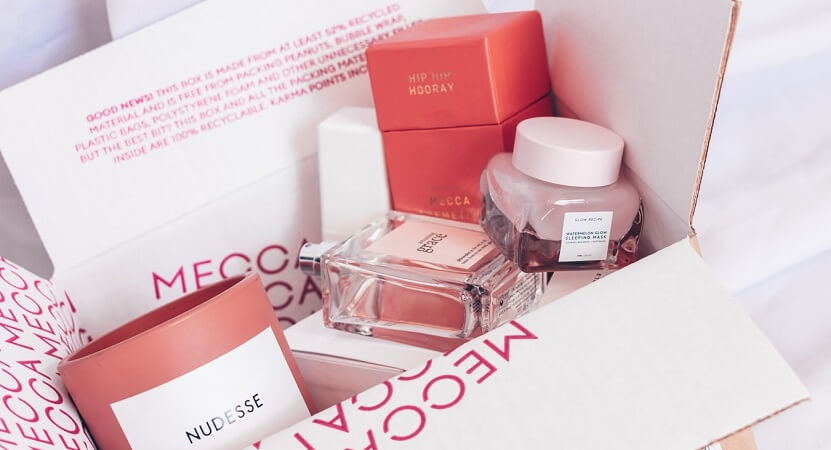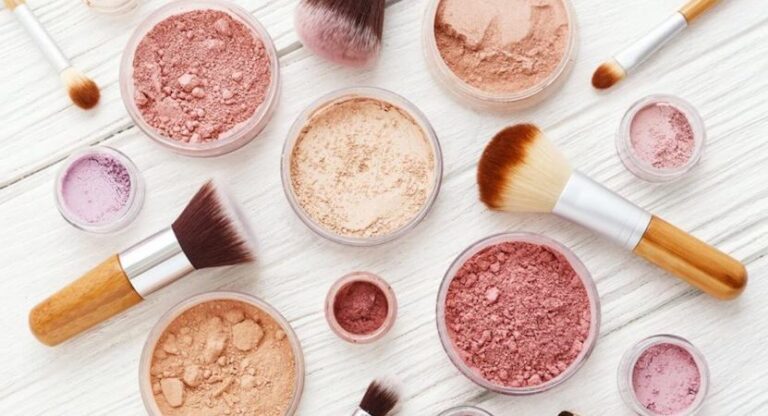Considering making the switch to a gluten free beauty routine? It could be a necessary change, especially if you’re sensitive to proteins, as many individuals are. Here’s everything you need to know about gluten free beauty products:
In this article we discuss the following:
- Why Use Gluten Free Beauty Products?
- Gluten Free Makeup
- Gluten Free Shampoo
- Gluten Free Skincare Products
- Gluten Free Soap
- Gluten Free Body Lotion
- Gluten Free Eyeliner
- Gluten Free Foundation
- Chapstick Gluten Free
- Gluten Free Lipstick
- Gluten Free Moisturizer
- Gluten Free Face Wash
- Gluten Free Toothpaste
- Is Maybelline Gluten Free?
- Is Cerave Gluten Free?
- Is Clinique Gluten Free?
Why Use Gluten Free Beauty Products?
Gluten in Cosmetics
Gluten is a storage protein found in certain cereal grains. Not everyone can ingest the enzymes safely, and one in every 100 people suffer from what is known as celiac disease; a condition whereby ingesting gluten causes extreme pain, and can even be fatal.
A lot of cosmetics are made using ingredients and stabilizers derived from glutinous grains. Some oils and flavorings are derived from wheat, barley and rye, which means trace amounts of gluten will be present in the product compound.

Gluten isn’t limited to cosmetics; these compounds are present in shampoos and conditioners as well. Many soaps and even toothpastes also contain gluten, which shows why moving toward gluten free beauty products is of such importance to some individuals.
“If a brand or company would like to be more inclusive and reach more customers, it’s beneficial for them to create products that are gluten free,” notes Nechami Tenenbaum, the creator & CEO of Karmela Cosmetics.
Brands like Afterglow Cosmetics have made waves by becoming amongst the first names to be certified gluten free in the beauty market; something that wasn’t really done in the past. But what is the real threat to finding gluten in cosmetics, and can allergic reactions really happen through the skin itself?
Can Gluten be Absorbed Through the Skin?
The short answer is: not really. The skin is the biggest organ in the body, and by that logic it would seem that a compound that is in disagreement with the individual, would naturally lead to a certain number of side effects.
Although it is particularly difficult for gluten to be absorbed through whole skin, it is very easy when there is a visible abrasion, wound or break.
If you want to understand how external elements are absorbed by the skin, one need only consider the concept of copper bracelets. Copper bracelets are used to treat internal ailments, such as joint problems, from the outside of the body. Through the skin, trace amounts of copper are absorbed from the bracelets and delivered into the bloodstream where they can offer relief.
In the same way, any gluten-rich cosmetic or skincare product could very well gently penetrate through the pores of the skin, putting those with celiac conditions at risk of reaction. That being said, most doctors are in agreement that the gluten in skincare and beauty products would actually need to be physically ingested before it could pose harm to the individual. There is not enough evidence to suggest that absorbing gluten through the skin can be detrimental to one’s health, both long or short term.
The amount of gluten that needs to be present in order to cause a reaction differs from person to person. Gluten-intolerant individuals tend to vary in terms of their sensitivity. For some, minute amounts of gluten will pass through without any reaction at all; for others, this same amount could lead to severe itching or rashes and, in some cases, even blistering.
Gluten Free Makeup
And so sees the need for gluten free makeup brands that can bridge the gap for those in need of safe cosmetic solutions.
Makeup is one of the more significant risks for individuals who suffer from gluten intolerance. The belief is that any product that comes into close contact with the mouth region, poses the most risk of ingestion, and therefore is more likely to result in reaction.
Foundation, lipstick and even shampoos have more frequent contact with the mouth than we realize; think about how shampoo runs down your face while you wash in the shower. Gluten in any of these cosmetics can put you at risk, and thus the gluten-free variants are definitely superior.
Instead of gluten-rich proteins, these brands will make use of grain alternatives that don’t contain the harmful enzyme. Very similar cosmic results can be attained in makeup through the use of naturally gluten-free grains, such as quinoa, brown rice and sorghum.
But do these gluten free beauty products work as well as their gluten-filled counterparts? According to Essie Button, a former esthetician, hairdresser, and makeup artist the answer is yes. “Gluten-free products are just as effective as those that contain gluten,” says Button.
There is an abundance of gluten free makeup at Sephora, and stores of a similar nature. You need only take the time to read the packaging, as most brands will proudly proclaim “gluten free” on the front or back of their product. The label has become something of an achievement within the beauty industry over recent years.
However, Nisha Barot, Founder of The Milana Company cautions that “Nowadays, with the growing concern of gluten-sensitivities, skincare companies are labelling products as ‘gluten-free’, but it is important to note that unless the product has been manufactured under a quality-controlled environment, there may be a possibility of cross-contamination.”
Gluten Free Shampoo
As mentioned, shampoo is a self-care product that puts gluten intolerant people in harm’s way more often than they realize. When shampoo runs off of the head, down the neck and into the drain, it usually makes some sort of contact with the face and mouth-area of the individual.
While it may not enter the mouth per say, even the act of having to spit or rinse with water because the shampoo has been around the lips, is reason enough to assume gluten contact has occurred.
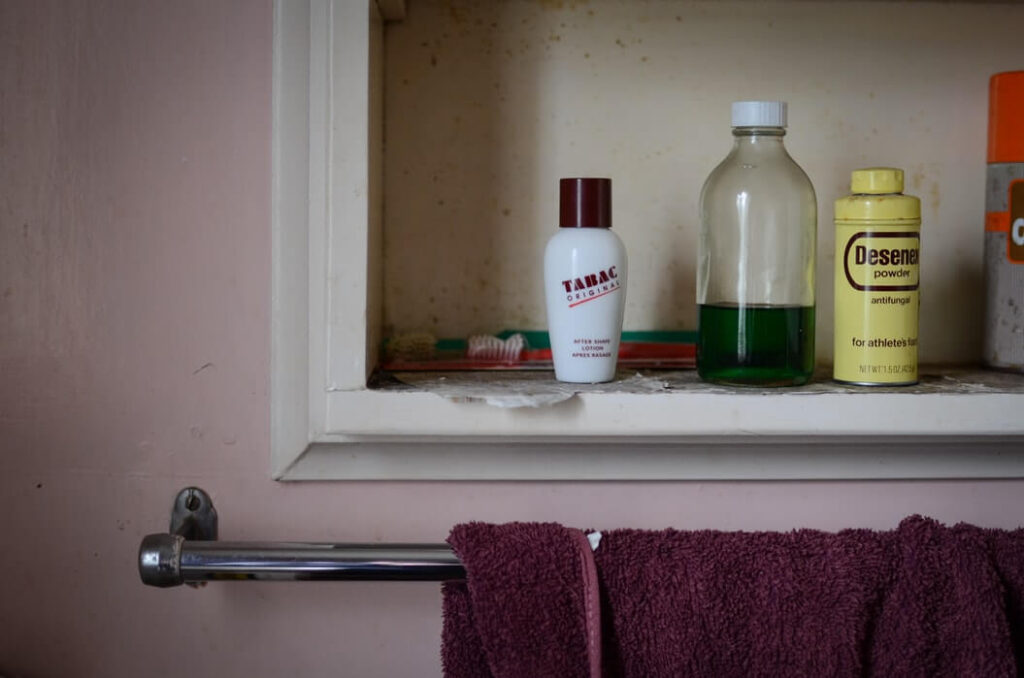
Gluten ingredients in shampoo include wheat starches, hydrolyzed wheat protein, wheat germ oil, and triticum vulgare. The following are also indication of the presence of gluten:
- Hordeum vulgare (barley)
- Steardimonium Hydroxypropyl
- Laurdimonium hydroxypropyl
- Rye
- Oats
- Dextrin palmitate
- Vegetable protein
- Beta glucan
If you suspect that you may be reacting to gluten even mildly, we recommend investing in a quality gluten free shampoo and conditioner set — just to be sure! Conditioners are not exempt from glutenous ingredients, and pose a similar amount of risk for contact with the face and mouth.
Gluten Free Skincare Products
Skincare is a big industry that draws much of its ingredients from nature. Since wheats and grains are such abundant resources to the Earth, it makes sense to make use of them in the formulation of different skincare products.
The problem is that skincare products are mostly used on the face, which again brings up the problem of gluten making its way into the body through the mouth. Gluten free skin care solves this issue, as there will no longer be gluten-rich products near or on the lip/mouth region.
Are gluten free skincare products less effective than those that contain this enzyme? There is no reason to suggest that products made without the gluten protein would be less effective at their designated role than those made with wheat grains.
On the contrary, the market is quickly becoming saturated by a myriad of gluten free anti-aging skin care that is rumored to be more effective than products that do contain the enzyme. Research surrounding this notion remains in the early stages, however what science does know is that gluten weakens the immune system, causing inflammation and infection. Through these effects, premature aging is a likely side effect.
Given this information, you may be long overdue in switching to a gluten free skincare regime.
Gluten Free Soap
The trouble with a lot of the soaps we purchase as consumers, is that they are generally not under obligation to disclose when and where gluten-rich ingredients have been used. Soaps tend to be artisanal products, and anybody can make and sell them under the guise of homemade self-care.
It’s only the big name brands that will explicitly list the use of any gluten-rich ingredients on their product packaging. Homemade soap brands are likely to only list the noteworthy ingredients that a user is likely to be drawn to; such as lavender, sandalwood, or rosewater.
A gluten free soap bar can drastically reduce the amount of contact you have with gluten in general. Most people wash with soap at least once a day, with a vast amount taking two showers and doubling this contact.
When washing with soap, it’s no secret that the ingredients within the bar are seeping deep within the pores of your skin, usually softening or moisturizing them in the process. While allergic reaction to gluten is very rare in these instances, it is not impossible.
Consider adding gluten free bar soap to your daily washing regime, replacing any products that may be concealing the fact that they make use of gluten in their production process.
Gluten Free Body Lotion
Body lotion is similar to soap in that we tend to cover our bodies with it. The downfall is that, unlike soap, we don’t wash body lotion off after application. Rather, we leave it to seep into our skin and affect us throughout the day. Whether this effect is positive or negative depends entirely on the ingredients in question.
Body lotions will generally disclose all gluten-based ingredients contained in the compound. Lotions tend to rely on grain-rich starches in order to stabilize themselves into a pliable formula.
The trouble is that gluten free grains tend to be a lot more expensive than gluten-rich ones, and this is a problem when producing products that require vast quantities of ingredients in their making. Brands can save a lot of money by making use of the most abundant grains, even if they are gluten-filled, as opposed to seeking out more friendly alternatives.
For this reason, gluten free body lotions are not common, and you’d have to seek out distinctive brands if you desired a product of this nature. Expect to fork out more for these lotions, but remember that it’s worth it!
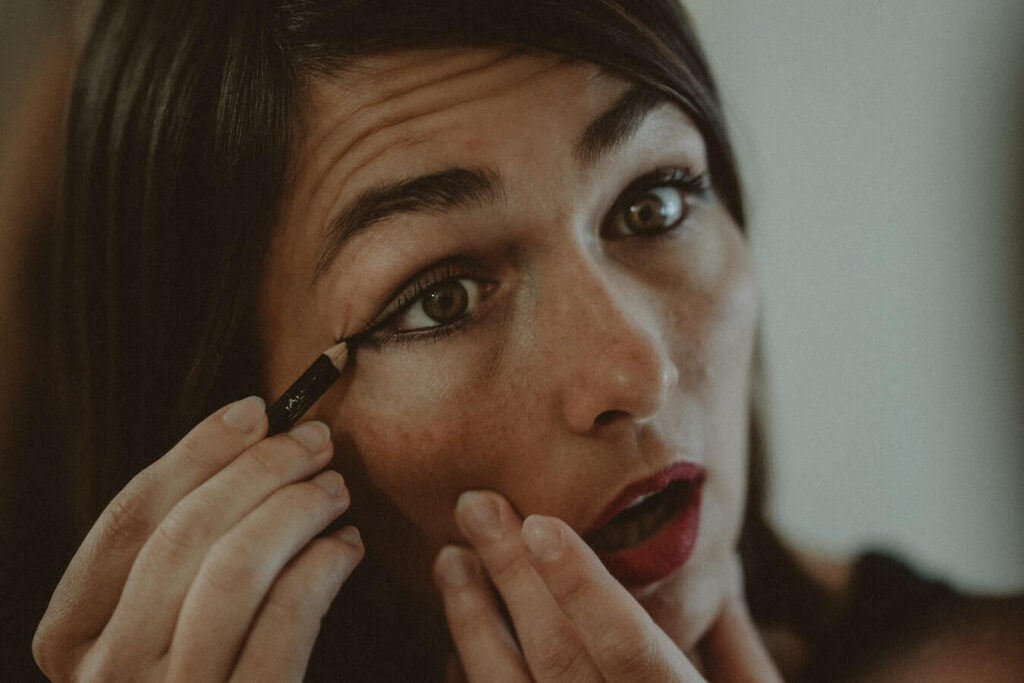
Gluten Free Eyeliner
Gluten in eyeliners? Believe it!
Though uncommon, there are some cosmetic brands that require the use of grains in order to stabilize their product, and in these instances gluten will absolutely be present in things such as eyeliners (both paint and pencil versions).
Something that cosmetic researchers need to start taking a closer look at, is whether irritation of the eye can be traced back to ingredients such as gluten, upon making use of such products. We are usually quick to assume that, when an eyeliner or mascara irritates our eyes, we must be having a reaction to a chemical in the formula. In reality, it may just be that our very sensitive eyes are not in agreement with the amount of gluten that they are being subjected to.
We’d like to note that just because an eyeliner brand doesn’t identify itself as explicitly gluten free, is not to say that it definitely contains gluten by default. It’s only now becoming trendy for eyeliner makers to state their lack of gluten; however, many of them will have been gluten free since as early as the brand’s inception. Always refer to the itemized ingredient list and draw your conclusion from there!
Gluten Free Foundation
Foundation is one makeup product that doctors warn could be a trigger for those with extreme gluten intolerance. Foundation is generally applied all over the face, and the lip/mouth area is included in this process.
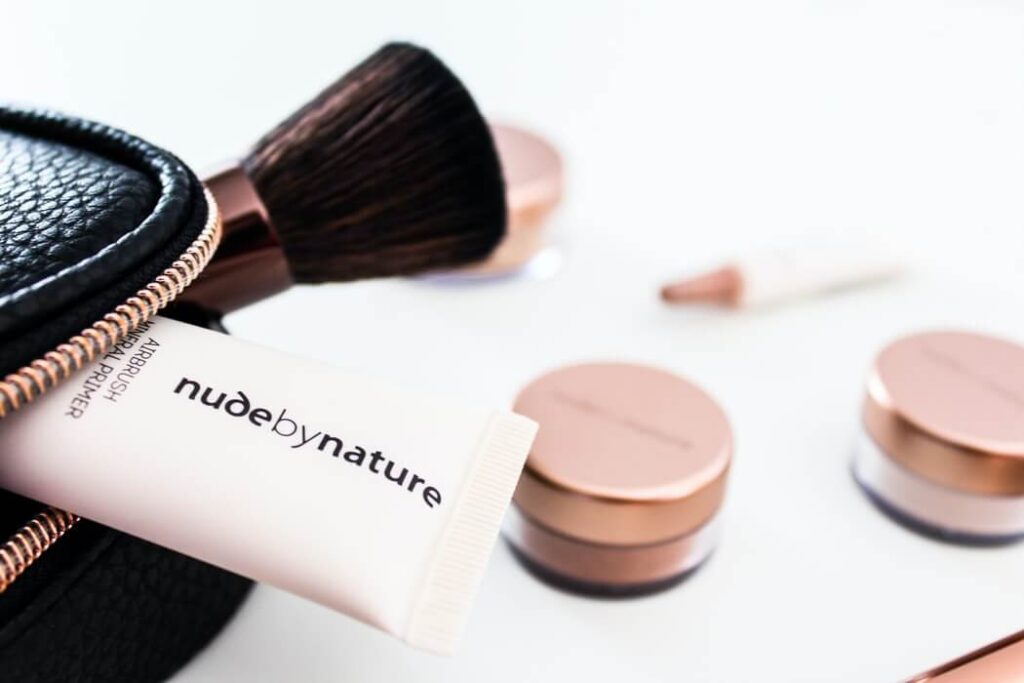
Anyone who wears foundation will tell you that after applying it, they have to take a wipe or a towel to the lips to clean them of the residual makeup or risk losing them entirely as they blend in with the rest of the face.
Granted, having an adverse reaction to the gluten present in a foundation is extremely rare, as the amount you would have to swallow for it to cause real harm is so distinct. That being said, those with extreme celiac conditions can never be too careful, as even a trace amount of gluten could result in an internal shut down.
We also need to consider the aforementioned point concerning premature aging and gluten. If there is any risk of gluten-rich foundations causing aging of the face, this seems reason enough to switch to a more gentle alternative.
A gluten free makeup foundation may be step one in building a more ageless, harmless beauty routine.
Chapstick Gluten Free
Next up is chapstick; the staple product for anyone who cares about the condition of the skin of their lips at all.
Lip products probably pose the most significant risk for gluten ingestion, especially those deemed as tasty and edible as chapsticks.
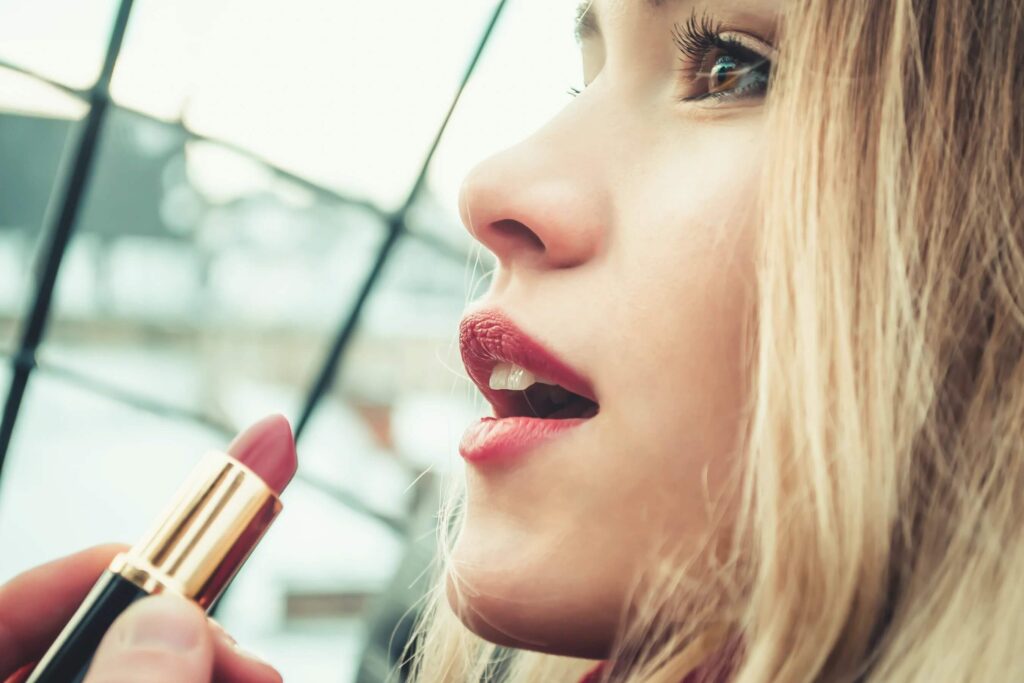
Because we apply these kinds of lip hydrators directly to the mouth, it’s not advisable for anyone with a gluten intolerance to make use of them. The risk is simply not worth the reward, and that’s saying a lot considering how delectable these lip balm flavors can be.
So, is chapstick gluten free? It’s difficult to say. No products made by the Chapstick brand are explicitly labeled as being gluten free. This may indicate that the products contain unlisted ingredients that may be wheat derived, or that they are being manufactured in machinery that is also used for the production of other gluten-rich products.
On their FAQ page, the makers of Chapstick answer a number of direct questions pertaining to the compounds of their formulas. One specific question asks whether or not there are oats, rye or barley used in the making of chapsticks, and the answer is no. While this is a good sign, it doesn’t entirely rule out other carriers or gluten that were not listed.
Gluten Free Lipstick
Like chapstick, lipstick is another high risk cosmetic that often contains trace amounts of this harmful enzyme, and puts us at risk by settling on the lips.
We don’t realize it, but when wearing lipstick we are constantly ingesting small amounts of the product, especially when we eat or drink throughout the day. Unlike chapstick, most lipsticks are incredibly long lasting, causing more frequent exposure to the gluten and thus putting us at further risk.
A journal directed at celiac health has stated that avoiding any lipsticks, lip balms or lip glosses with gluten is highly advised. The risk of ingestion is simply too high, and not worth it for someone who’s organs aren’t able to handle the presence of these enzymes in regular food.
Most of today’s lipstick brands will identify themselves as gluten free beauty products from the get go. Alternatively, for more old school brands, you may have to inspect the label or make contact with the brand directly to confirm whether or not it is safe for you to use.
Gluten Free Moisturizer
In the plight toward gluten free skincare, it comes necessary to take a look at the contents of your daily moisturizer.
Most facial moisturizing products make use of an array of different plant oils, so that they may hydrate the skin to desired levels. Plant oils and human skin go together like a match made in heaven, so there is great benefit in finding a brand that suits your skin’s needs to perfection.
Often, wheat germ oils, as well as oils from oats, are used in the making of facial moisturizers. They create ease of pliability in the product, while offering intense hydration to the skin, as well as antioxidants. Unfortunately, these come with a daily dose of gluten, and users are again at risk of those premature aging side effects that scientists are still looking into.
A gluten free face moisturizer is the way to go, especially until we can confirm or deny whether premature aging can occur through topically applied gluten, or whether it is only a result of ingested gluten.
Thankfully, the market has become so abundant in options, one can even purchase gluten free tinted moisturizers if desired. You won’t have to make any sacrifices when it comes to this skincare switch up.
Gluten Free Face Wash
Any face wash product that claims to be intensely hydrating and filled with antioxidants, is likely made using gluten-rich ingredients and wheat-derived oils.
Granted, this oversimplifies things quite a bit, and is not to say that all face washes with these attributes are gluten packed. It’s simply common knowledge within the skincare world that grain oils make for the most moisture-rich compounds, as well as contribute to the overall pliability of the face wash.
In our opinion, a face wash is not an integral enough part of the skincare routine to allow gluten to be knowingly present. If you can find a face wash that tends to your needs but contains gluten, you can find the gluten free equivalent not far behind.
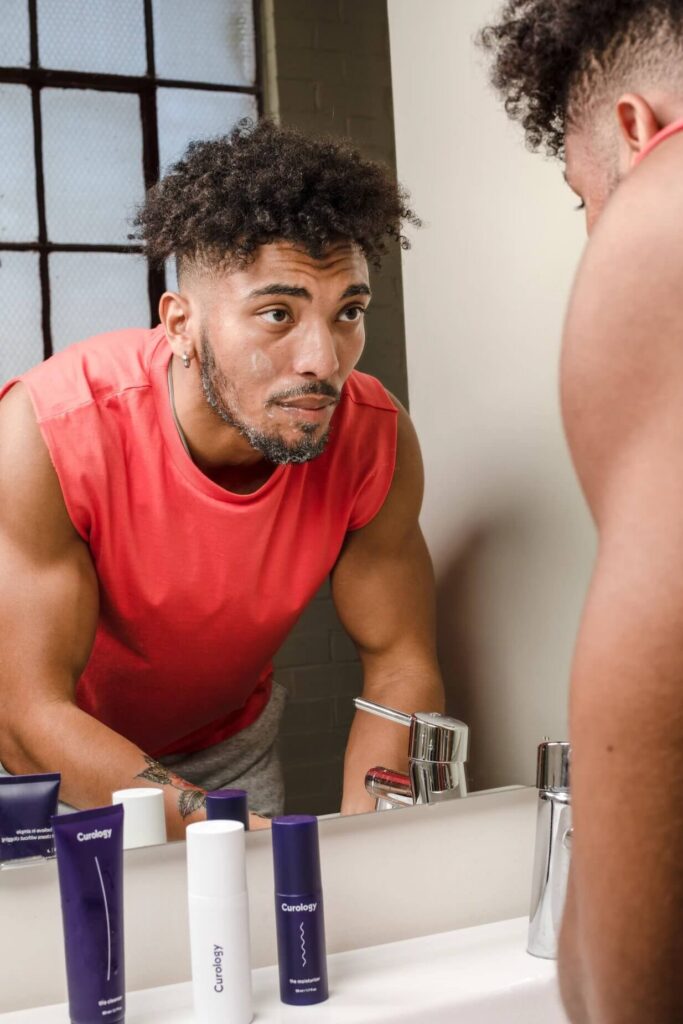
The face wash market is a competitive one, and consumers are no longer accepting products that lack in certain areas. They simply move to a different brand who honors their needs. Look for the gluten free certification on any face wash you choose to use from now on!
Gluten Free Toothpaste
Sometime during the move away from fluoride-rich toothpastes due to health concerns, brands also started identifying their teeth cleaning products as gluten free. If you look at any natural-brand toothpaste on the market today, you’re likely to see a long list of identified ingredients that are not present in the formula, namely: fluoride, parabens, artificial fragrances and gluten.
It goes without saying that anyone with even a mild concern over the ingestion of gluten will do well to steer clear of any form of toothpaste that makes use of grain derived ingredients. Toothpaste isn’t only getting close to your lips, it’s entering the mouth itself, and from here it’s a mere seconds before some of the formula is either ingested, or absorbed through the tongue and glands.
The good news is that almost all toothpaste on the market today does not list gluten as an explicit ingredient. They’re safe to use, however the brands will generally not go on public record as stating their product as “gluten free”, as most of them are sharing factories with other products that may lead to cross contamination during production. This could lead to big problems for the company, should someone with a gluten intolerance ever become affected by their product due to contamination in the factory.
Is Maybelline Gluten Free?
Unfortunately, amongst gluten free skin care brands, Maybelline is not yet one of them.
A lot of products made by Maybelline contain gluten-rich ingredients, with no change in sight as far as we know. That said, Maybelline did cater to the lipstick demand, releasing four lipstick varieties that they deemed totally free of gluten:
- Color Sensational Lipstick
- Color Sensational Lipgloss
- SuperStay 2 step
- 24 Hour Shine Sensational Lipgloss
Maybelline encourages anyone with intense gluten allergies to first check with their physician before making use of their listed gluten free products. They acknowledge that cross contamination is impossible to rule out, and it’s simply not worth it to risk usage until a health care practitioner has been made aware of your intent.
It’s important to note that Maybelline is owned by L’Oreal, so be sure to double check the ingredient listings of these products as well, as many of them will also be filled with gluten-derived compounds.
Is Cerave Gluten Free?
Cerave is a critically acclaimed skincare brand that is said to have been developed alongside dermatologists. Interestingly, Cerave is also owned by our friends at L’Oreal.
Customer service representatives at Cerave are open in reporting that many of their products do contain trace amounts of gluten. In the same breath, they state that although they make use of gluten grains, the refining process is so intense that it’s not often that the gluten protein actually makes it into the formula.
This is not to say that it can’t, which is why they remain open to the notion that yes, gluten may very well be present in some of their products. Like Maybelline, Cerave recommends discussing the use of the products with a healthcare provider, should one live with extreme sensitivity to gluten.
To try to manage the amount of gluten that could potentially show up in their products, Cerave have laid out strict production standards surrounding the exact ingredients they will and will not work with.
Is Clinique Gluten Free?
Clinique is an enormous cosmetic brand found worldwide. There has been no worthwhile demand from the public for their introduction of gluten free beauty products, but over the years the brand has released a handful of lipsticks free of the gluten compound.
Clinique makes a point of listing any and every ingredient used in the production process on their packaging. From here, it is easy to distinguish the unintentionally gluten-free from those that are gluten-rich.
What Clinique does guarantee to their consumers is that they do not test any of their products on animals, and that thorough allergy tests are done on a variety of individuals prior to the public release of a product.
If you are very sensitive to gluten, we recommend steering clear of their mascaras, hand and cuticle creams, and moisturizing lotions.
Did You Enjoy This Article?
If you enjoyed this article, you might also like our articles discussing skincare such as 13 Top Reusable Cotton Rounds and DIY Makeup Removing Pads, 13 Best Eyebrow Growth Serum, and CBD Skin Care.

